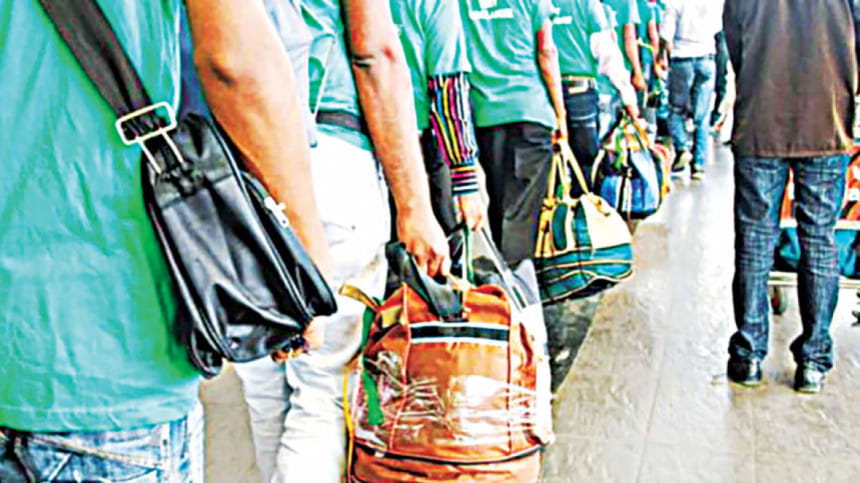Migrants stranded as ‘Ami Probashi’ app goes offline

Abdul (not his real name) paid for his Bureau of Manpower, Employment and Training (BMET) clearance through the Ami Probashi app, completed all the necessary steps online, and was ready to board his flight to Saudi Arabia.
But when the app abruptly became inactive following the government's decision not to renew its contract, his dreams were grounded—literally.
"The ticket was bought, and bags were packed," he said.
"Then, just because the app was blocked and no one had any answers, I had to stay behind. I don't even know if I'll get another visa."
He is one of more than 2,100 migrant workers left in limbo after the Ami Probashi app—once widely used to apply for BMET clearance—ceased functioning on April 19 when its agreement expired.
Though optional, the app became immensely popular as a transparent and agent-free method to complete formalities. Over four million people used the platform, often bypassing middlemen and associated costs.
Over 20 workers have already missed their flights, while at least 50 are on the verge of losing their visas.
"My visa will expire in a few days. I completed everything through the Ami Probashi app and was just waiting for clearance. Now I don't know what will happen," said another affected worker.
Launched in May 2021, Ami Probashi was a privately developed app that partnered with the Ministry of Expatriates' Welfare to digitise services including BMET registration, emigration clearance, and Pre-Departure Orientation (PDO) bookings.
Though optional, the app became immensely popular—particularly among tech-savvy migrants—as a transparent and agent-free method to complete formalities. More than four million people used the platform, often bypassing middlemen and associated costs.
Now, with operations suspended, thousands are struggling. Over 10,000 workers trying to book daily PDO sessions cannot secure slots. Another 5,000 are in queue for one-stop clearance.
The government-backed digital alternatives, developed in collaboration with Buet and a few other institutions at a hefty cost in taka, has so far failed to operate smoothly, according to sources.
In the absence of a functioning online system, manual processing has returned—bringing with it allegations of corruption. Several workers have alleged that BMET officials are nudging them towards manual submissions, where unofficial payments are being demanded.
Those who previously completed the entire process independently are now turning to recruiting agents, often paying large sums for services they could once access themselves for free.
Tarique Ekramul Haque, managing director and founder of Ami Probashi, said the app was always focused on empowering migrants.
"To help them, we are ready to cooperate with the government and any stakeholders in the sector," he said.
"Though not mandatory, our submission system offered a vital alternative—allowing migrants to apply for training and clearance from their mobile phones."
He added, "We have full faith that the government is doing its best to resolve the issue and assist the affected migrants."
The crisis comes at a time when overseas job markets are shrinking.
"Most labour markets are actually closed," said a former joint secretary general of the Bangladesh Association of International Recruiting Agencies, speaking on condition of anonymity.
"Saudi Arabia is practically our only active labour market. If we create obstacles there, labour migration will drop sharply," he added.
A new requirement mandating embassy verification even for single workers—previously only required for bulk demand letters of 25 or more—has further slowed the process.
Syed Saiful Haque, chairman of WARBE Development Foundation, said the government should immediately reinstate the Ami Probashi app to prevent further disruption.

 For all latest news, follow The Daily Star's Google News channel.
For all latest news, follow The Daily Star's Google News channel. 



Comments